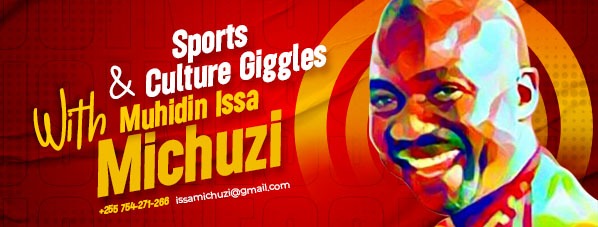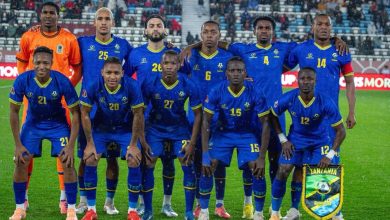The gospel according to laughter: Why Tanzania’s comedy needs its Mr Bean moment

DAR ES SALAAM: IF you were in Dar es Salaam on the 24th of April 2011, you might remember a calm, tall gaptoothed man taking his first-ever interview after years of making people laugh.
That man was Evans Bukuku, the godfather of Tanzanian stand-up comedy, the man who dared to make the nation laugh before laughter was cool.
He was sitting there, softspoken but sharp as a razor, talking about the odd journey of becoming the first Tanzanian to ever treat jokes as a profession.
His reflections that day were like a reminder of a time when the idea of “stand-up comedy” was so foreign that people laughed not at his jokes, but at this funny career choice.
“When I told people I wanted to be a comedian, they laughed — not because I was funny, but because they thought I was joking,” he said with that classic Bukuku calm heavy and Nyakyusa accent.
Back then, there was no social media, no ring light, no TikTok algorithm.
There was just Evans, a microphone and a vision to make humour Tanzanian — raw, relatable, bilingual and brave.
His Vuvuzela Comedy Show on Clouds TV between 2010 and 2011 became the first televised stand-up platform in the country.
It opened a door and from that door came everything we see today.
Fast-forward to now and the Tanzanian comedy scene has evolved faster than a Tanesco power cut.
Comedy has escaped the dusty grip of traditional TV, which once ruled with shows like Orijino Komedi, Zee Comedy, Mizengwe and Futuhi.
Those were the days you’d have to wait for a Friday night to laugh, when the laughter belonged to broadcasters, not to you. But that world is gone.
Today, comedians are their own stations. They upload when they want, perform how they like and answer to no one but their audience.
Social media has democratised laughter — anyone with a smartphone can build an empire, or at least a meme. And some of them have done just that.
Cheka Tu under Coy Mzungu has risen from a YouTube experiment to the most recognisable comedy brand in East Africa, overtaking Kenya’s once mighty Churchill Show.
Coy turned jokes into business and showed everyone else how to turn views into value.
Then there’s Shafii — or Mr Masuala, as everyone calls him — who began by filming from a small, creaky house in Sinza wearing a reflector vest that could probably be seen from space.
His opening line “Masuala ya…” became a cultural code. What started as a random skit turned into a national obsession.
Shafii built a mini comedy empire with over 850,000 followers, running multiple series like Baba Mwenye Nyumba and Beki Tatu and mentoring young comedians like Nanga and Uncle Mussa.
You can almost imagine Bukuku smiling somewhere, knowing the seed he planted has become a forest.
Meanwhile, Asmah Jamida, one of Tanzania’s first true female stand-ups, has turned comedy into a space for empowerment.
A few years ago, you couldn’t find a woman on stage cracking jokes — now Asmah is there, front and centre, with millions of followers and collaborations with Mama Chanja.
Her humour isn’t just funny; it’s revolutionary. She represents every woman who’s been told, “this isn’t your place.” Well, now it is.
And let’s not forget Mr Mwanya, that walking, talking meme whose tooth gap became his brand and whose backward blue vest could probably qualify for intellectual property protection.
He’s hit a million Instagram followers and even released songs like Bonjour and Pombe, proving he can sing, joke and still find time to eat cake for the cameras.
Then there’s Hakika Ruben, the soft-spoken talent from Iringa who started small, went viral and stayed there.
From one skit to a media tour, from Clouds FM to Wasafi FM, he’s now a household name with over a million followers — and still as humble as a villager’s Wi-Fi signal.
Some, like Zero Brainer, took a quieter path. He doesn’t do interviews, doesn’t crave fame, yet he’s the most followed Tanzanian on TikTok.
With over six million fans and 64 million likes, people even think he’s Kenyan because his football skits are so good.
Others, like Ndaro, have cracked the secret of blending comedy with commerce — his Infinix ad with Meena Ally went viral across East Africa.
TX Dullah brings wisdom to the craft, delivering laid-back jokes with the calm of a monk who’s seen everything.
And Leonardo, the engineering graduate who won Cheka Tu Comedy Search in 2021, is living proof that you can have brains and still be funny.
Fluent in English and Swahili, backed by brands like NMB and Faras, Leonardo is to comedy what Diamond Platnumz is to music — a benchmark of ambition and brand power.
But behind the laughter, there’s a warning blinking like a red light.
We’ve seen it before. Great ideas burn bright, then fade because the stars behind them try to do everything.
They become their own cameramen, editors, accountants and PR teams.
They’re comedians by night and unpaid production crews by day. And just like that, the spark that made them special burns out under exhaustion and ego.
Comedy isn’t supposed to be a one-man show — it’s supposed to be a one-man performance backed by a hundred unseen professionals.
This is where the lesson of Mr Bean comes in. Rowan Atkinson didn’t just make faces — he built an empire.
Behind him was Tiger Aspect Productions, a proper registered company formed in 1988, employing nearly 80 people, earning close to 60 million US dollars a year by 2003.
They produced Mr Bean, Billy Elliot, Vicar of Dibley — and each time, they made sure the funny man was never alone.
That’s why Mr Bean still makes money long after Atkinson retired the tweed suit. It’s not just comedy — it’s commerce.
And here’s the thing — this “I can do it all” mentality is part of a larger Tanzanian habit.
Somewhere along the way, we convinced ourselves that talent alone is enough. That schooling is optional. That if you can talk, you’re a journalist.
And if you can make people laugh, you’re a comedian (smile…), or if you can sing in key, you’re a musician.
The problem is that we’ve mistaken raw talent for professionalism.
It’s the same disease that nearly destroyed journalism in Tanzania.
People began saying, “ah, hii ni kipaji tu, haihitaji shule,” as if training was for the talentless.
Thank God for the Journalism Accreditation Board — JAB — which came in like an emergency mechanic fixing a wobbly wheel.
They drew the line. No papers, no press card. Suddenly the “keyboard warriors” vanished and news began sounding like news again.
The same medicine is needed in comedy. Not in the form of accreditation, but in mindset.
Comedians must start thinking like entrepreneurs, creators and employers. Because the industry is now too big, too influential and too commercially promising to be left to chance.
The next step is professionalism — hiring managers, collaborating with scriptwriters, training in stage presence, lighting and post-production.
Tanzanian comedy needs not just laughs but legacies. Every great comedian should have a team behind them, so that when one retires, the machine keeps running.
The tragedy of Orijino Komedi and Mizengwe wasn’t lack of talent; it was lack of structure.
The good news is that the foundation is already there. The audience is growing, sponsors are paying attention and the world is watching.
Tanzanian humour has something that others don’t — it’s rooted in reality, rich in language and delivered with that peculiar mix of Swahili wit and coastal rhythm.
It’s the kind of laughter that smells like rain on dust roads — familiar, unpolished and utterly honest.
What’s missing is the machinery to make it last. Comedy, like journalism, should evolve from “kitu cha kipaji” to “kitu cha kitaaluma.”
Because if laughter is medicine, then comedians are doctors — and we can’t have unqualified doctors treating the nation’s stress.
So maybe, just maybe, the next Evans Bukuku won’t just be holding a microphone — he’ll be holding a company registration certificate.
Because the joke, dear reader, should never be on the comedian.





